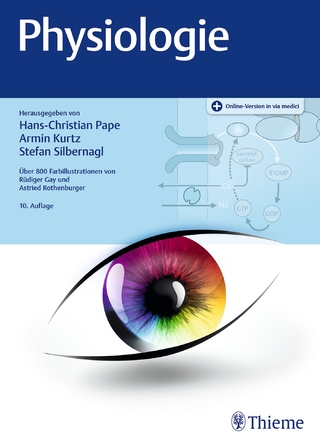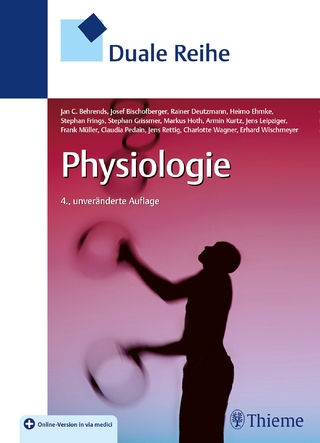
Tetrahydrobiopterin
Basic Biochemistry and Human Disease
Seiten
1997
Johns Hopkins University Press (Verlag)
978-0-8018-5344-9 (ISBN)
Johns Hopkins University Press (Verlag)
978-0-8018-5344-9 (ISBN)
- Titel ist leider vergriffen;
keine Neuauflage - Artikel merken
This text presents the results of decades of research by the author into tetrahydrobiopterin and its links to various genetic diseases, including Parkinson's disease, Alzheimer's disease and infantile autism. The current state of knowledge of its biochemical functions and biosynthesis is discussed.
Phenylketonuria (PKU) is a genetic disorder of metabolism, caused by a deficiency in the enzyme phenylalanine hydroxylase. If left untreated, it can produce brain damage resulting in severe mental retardation, often with seizures, other neurologic abnormalities and deficient melanin formation that predisposes to eczema. Because PKU can be treated if detected early enough, newborns are now routinely screened for it. In 1963, Seymour Kaufman discovered that tetrahydrobiopterin, a naturally occurring small molecule, is the essential coenzyme for phenylalanine hydroxylase. Later, he and others showed that tetrahydrobiopterin is also essential for tyrosine and tryptophan hydroxylases, providing that this coenzyme is required for the biosynthesis of the neurotransmitters dopamine, norepinephrine and serotonin. Since then Dr. Kaufman has been studying tetrahydrobiopterin, PKU and variant genetic diseases. (Lack of tetrahydrobiopterin has also been linked to Parkinson's disease, Alzheimer's disease and infantile autism). "Tetrahydrobiopterin: Basic Biochemistry and Role in Human Disease" presents the results of his decades of research and clinical experience.
As the world's leading authority on tetrahydrobiopterin, Kaufman offers this definitive book on the current state of knowledge of the biochemical functions and biosynthesis of tetrahydrobiopterin, as well as the genetic disorders involving it.
Phenylketonuria (PKU) is a genetic disorder of metabolism, caused by a deficiency in the enzyme phenylalanine hydroxylase. If left untreated, it can produce brain damage resulting in severe mental retardation, often with seizures, other neurologic abnormalities and deficient melanin formation that predisposes to eczema. Because PKU can be treated if detected early enough, newborns are now routinely screened for it. In 1963, Seymour Kaufman discovered that tetrahydrobiopterin, a naturally occurring small molecule, is the essential coenzyme for phenylalanine hydroxylase. Later, he and others showed that tetrahydrobiopterin is also essential for tyrosine and tryptophan hydroxylases, providing that this coenzyme is required for the biosynthesis of the neurotransmitters dopamine, norepinephrine and serotonin. Since then Dr. Kaufman has been studying tetrahydrobiopterin, PKU and variant genetic diseases. (Lack of tetrahydrobiopterin has also been linked to Parkinson's disease, Alzheimer's disease and infantile autism). "Tetrahydrobiopterin: Basic Biochemistry and Role in Human Disease" presents the results of his decades of research and clinical experience.
As the world's leading authority on tetrahydrobiopterin, Kaufman offers this definitive book on the current state of knowledge of the biochemical functions and biosynthesis of tetrahydrobiopterin, as well as the genetic disorders involving it.
Seymour Kaufman is chief of the Laboratory of Neurochemistry at the National Institute of Mental Health.
| Erscheint lt. Verlag | 11.6.1997 |
|---|---|
| Zusatzinfo | 49 illustrations |
| Verlagsort | Baltimore, MD |
| Sprache | englisch |
| Maße | 152 x 229 mm |
| Gewicht | 765 g |
| Themenwelt | Studium ► 1. Studienabschnitt (Vorklinik) ► Physiologie |
| Studium ► 2. Studienabschnitt (Klinik) ► Humangenetik | |
| Naturwissenschaften ► Biologie ► Biochemie | |
| Naturwissenschaften ► Biologie ► Zoologie | |
| ISBN-10 | 0-8018-5344-3 / 0801853443 |
| ISBN-13 | 978-0-8018-5344-9 / 9780801853449 |
| Zustand | Neuware |
| Haben Sie eine Frage zum Produkt? |
Mehr entdecken
aus dem Bereich
aus dem Bereich


